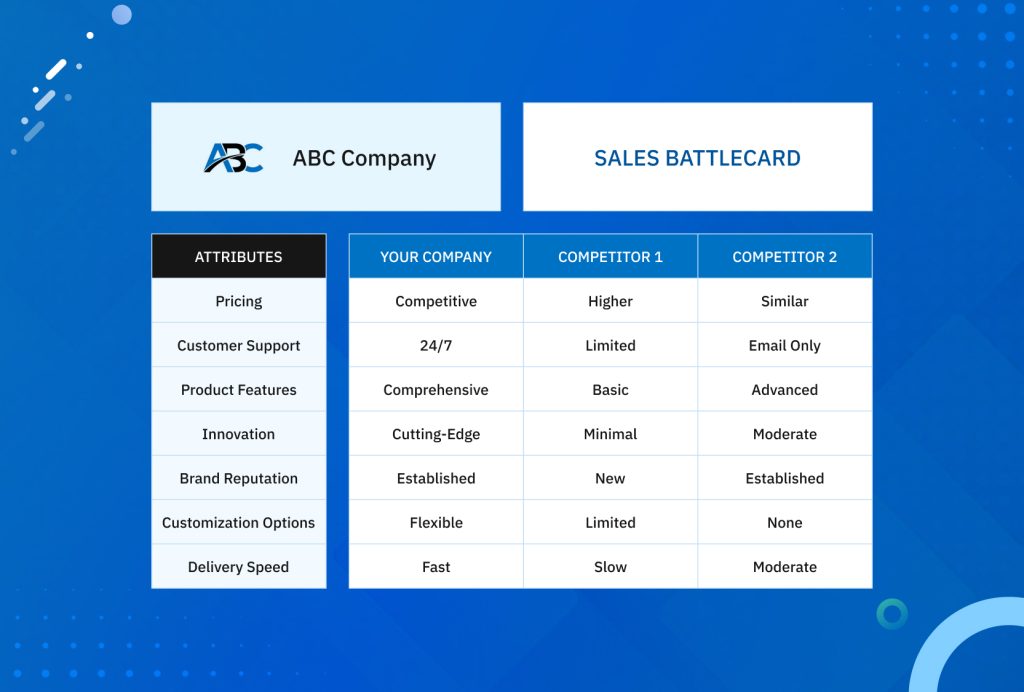Introduction
Imagine launching a new product in the market, only to realize your competitor introduced a similar one just a week earlier. Without real-time Market Intelligence (MI), organizations risk falling behind in today’s rapidly evolving market landscape.
According to one of McKinsey’s surveys, approximately 72% of companies across the world are extensively leveraging AI not just in building robust products and services, but becoming truly global. And, it’s a number that continues to grow. In this fast-shifting market, staying informed about competitors’ moves and industry trends is crucial.
Through this blog, we aim to break down,
- The importance of Market Intelligence and its benefits
- How it helps businesses make smart, data-driven decisions for sustainable and prolonged growth
- Why Contify is the best market and competitive intelligence tool to have in one’s arsenal
Market Intelligence: Your Strategic Compass
Market Intelligence is a systemic process of gathering, analyzing, and interpreting data about markets, industries, and competitors. When coupled with artificial intelligence (AI), MI empowers companies to effectively mitigate risks, strategically identify competitive threats, anticipate industry shifts, build robust offerings, and forward-looking strategies for competitive advantage.
It lays a much stronger foundation for organizations to leverage, achieve agility, and gain a decisive advantage. This is particularly beneficial in terms of identifying new market opportunities and acting upon them when the time is right.
Platforms like Contify empower businesses with actionable intelligence to unlock growth. Here’s how:

1. Spot Emerging Trends Before They Become Mainstream
Market intelligence helps businesses identify shifts in consumer behavior, emerging market trends, industry behavior, and competitor strategies. For instance, early adopters of MI recognized the rise of electric vehicles (EVs) and adjusted their strategies to capture new demand before competitors. Similarly, many giant tech startups detected the growing need for AI-powered chatbots using MI before the world, combined, and developed advanced solutions to solve customer problems on-the-go and gain a competitive edge.
2. Expand into New Markets
By analyzing economic indicators, competitor expansions, and regulatory changes, market intelligence helps identify potential markets with strong growth potential. This approach enables businesses to expand strategically rather than competing in a saturated, existing space. For example, insurance firms can use MI to identify customer pain-points and develop tailored plans that align with the evolving market needs.
3. Align Product Development with Real-Time Demand
Launching a product based on outdated market research or partial data can lead to costly missteps. Here, MI ensures businesses align their product roadmap with current customer needs and competitor strategies, leading to higher success rate at launch. A Fintech company, for example, can track competitor innovations and refine its offerings to improve customer retention as well as drive new business conversions.
4. Strengthen Competitive Positioning
With a 360-degree view of the market, organizations can benchmark performance, refine their go-to-market strategies, and seize more sales opportunities. A semiconductor manufacturer uses MI increased its sales pipeline by 25% and reduced customer churn by 50% by identifying cross-selling and upselling opportunities.
To maximize the benefits of your market intelligence, businesses must monitor both quantitative KPIs (e.g., revenue, sales) and qualitative KPIs (e.g., customer feedback, survey results). AI-driven analytics further accelerate insights, and can help companies make informed, timely decisions.
Market Intelligence Vs. Market Research
Many confuse market intelligence with market research and often use the two terms interchangeably. While they may appear similar, they serve different purposes.
To give you an example, market research is a one-time snapshot that helps you gather data on consumer preferences or financial trends at a single point in time. However, market intelligence is an ongoing process that provides awareness from all possible spectrums. It continuously monitors preferences of customers and shares information that influences a company’s long-term business strategy.
The table below highlights key differences between market intelligence and market research.
| Basis of Differentiation | Market Intelligence | Market Research |
| Objective | Evaluates the feasibility of a new product or service through research conducted directly with consumers. | Assesses the overall functioning of a business by maintaining continuous awareness of the target market. |
| Focus | Focuses on company-specific factors. | Focuses on market-specific factors. |
| Scope | Includes consumer preferences, customer perception, customer base, retention, trends, and product features. | Encompasses market share, industry investments, competitor strategies, market trends, and customer spending. |
| Strategic role | Provides insights for specific product or service development decisions. | Offers a comprehensive perspective to shape broader business strategies and market positioning. |
How Different Functions Are Using Market Intelligence
Market intelligence has become the key competitive differentiator for top-performing companies. According to a 2023 survey by Gartner, 70% of organizations have a MI initiative in place, compared to just 30% in 2018. Contify, an AI-powered market and competitive intelligence (M&CI) platform, offers the best market intelligence across the globe.
At present, it’s leveraged by 100+ global organizations across diverse industries to not only gather the right insights at the right time, but use them to stay ahead.
Mentioned-below are examples of how businesses across different spectrums use MI to gain a competitive edge.
Marketing Team: Getting A Holistic View
With MI, businesses can analyze all aspects of a market. It helps organizations gain a deeper understanding of their markets by gathering data in near real-time. For instance, marketers can track individual competitor campaigns and messaging to understand strategies that work well.
According to Hubspot, 96% of people research companies and products before engaging with their sales representatives. So when your potential customers come across one of your social media ads, the messaging will play a massive role in their customer journey.
Sales Teams: Boosting Wins
Without MI, there are often gaps in how and where businesses can market their products. For instance, a company manufacturing semiconductors was on the lookout for new sales opportunities but struggled with performing comprehensive research on its own.
With the help of a powerful MI platform, they were able to identify opportunities for cross-selling and upselling their products. This enabled them to increase their sales pipeline by 25%, along with a 50% reduction in customer churn.
Another major use case of sales is battlecards.

Battlecards provide concise intel that helps you understand your positioning as compared to your competitors. This is great for identifying gaps and performing market segmentation effectively.
Strategy Team: Gaining Competitive Advantage
Gaining an edge over competitors is one of the most desirable outcomes for most organizations. Strategy teams need to stay vigilant about the developments happening in their sector.
Monitoring competitor website updates, integrations, and patent filings provides valuable insights into their product roadmaps and strategic direction. Analyzing competitor product demos can also reveal new features or capabilities that may be overlooked.
Product Marketing: Making The Difference
Insight into how the competitors position themselves and effectively market their USPs with the right messaging. This is particularly helpful in determining which features can be used to benchmark yourself in the marketplace and stand out from the competition.
Further, you can differentiate your offerings from others in the same space. For instance, Ford has been a well-known name in the automobile industry for over a hundred years. Ford decided to follow suit when another player Tesla was taking up a lot of space with their electric vehicles (EV).
They did this by identifying product development opportunities amidst increasing demand for EVs.
Conclusion
Market Intelligence is an essential tool for businesses seeking to thrive in a competitive landscape. While implementing MI requires effort and investment, the benefits far outweigh the challenges, especially when using AI-enabled platforms like Contify.
Ready to transform your business with actionable Market Intelligence? Explore how Contify’s platform can help your organization gain a competitive edge today.
Sign up for a free 14-day trial.
Frequently Asked Questions
How does market intelligence differ from business intelligence?
The terms “Market intelligence” and “Business intelligence” are often used interchangeably. However, the former tracks external market trends and the latter leverages internal business data to extract valuable insights. Platforms like Contify provide 360-degree market intelligence by aggregating and analyzing data from diverse internal and external sources, and provide you with the most relevant information.
What are the key components of market intelligence?
There are four essential components of Market Intelligence that help businesses make informed decisions. These include competitor analysis, which evaluates your competitors’ strategies, strengths, and weaknesses; market trends, which refers to identifying shifts in consumer behavior and industry developments; customer insights, which is essential to understanding preferences, needs, and buying patterns; and industry dynamics, analyzing regulatory changes, technological advancements, and economic factors. Together, these components provide a comprehensive view of the market landscape.
What industries benefit the most from market intelligence?
Industries experiencing rapid change and high competition benefit the most from market intelligence. For example, IT firms rely on it to track innovations and emerging players, healthcare firms monitor regulatory shifts and medical advancements, finance organizations assess market risks and investment trends, and manufacturing businesses analyze supply chain dynamics and industry disruptions. Comprehensive market intelligence platforms like Contify provide real-time insights, helping these industries stay ahead by making data-driven strategic decisions.
What is the best way to gather market intelligence?
Effective market intelligence comes from consolidating diverse data sources into actionable insights. Market and competitive intelligence (M&CI) platforms, such as Contify, aggregate information from trusted global sources, including news outlets, social media, industry reports, customer feedback, and competitor websites. These platforms streamline intelligence gathering, offering businesses a centralized, real-time view of their market landscape, enabling better decision-making and a sharper competitive edge. Choosing the right M&CI platform is key to accessing valuable market insights.




